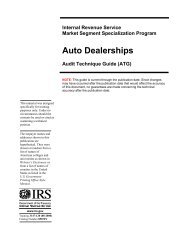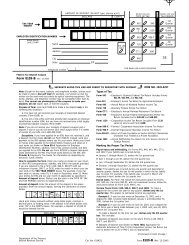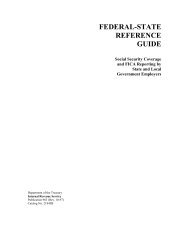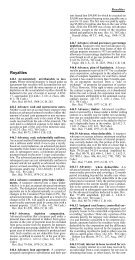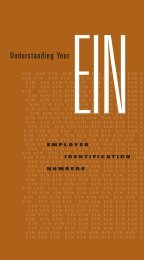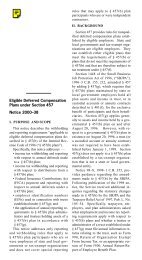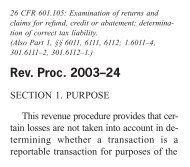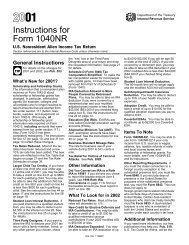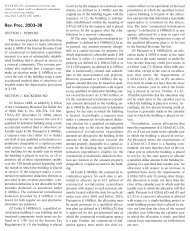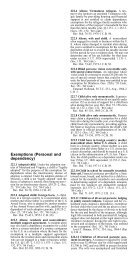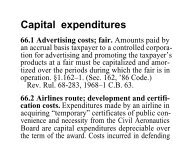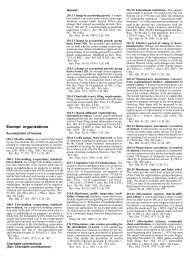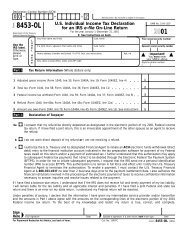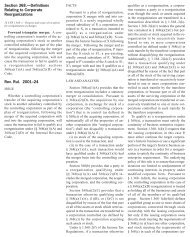NOTICE OF PROPOSED AMENDMENT TO RULE 173
NOTICE OF PROPOSED AMENDMENT TO RULE 173
NOTICE OF PROPOSED AMENDMENT TO RULE 173
Create successful ePaper yourself
Turn your PDF publications into a flip-book with our unique Google optimized e-Paper software.
-2-<br />
recently, the Internal Revenue Service Restructuring and Reform<br />
Act of 1998 increased the amount to $50,000, effective July 22,<br />
1998, and provided additional categories of small tax cases.<br />
In certain instances, a small tax case proceeding may be<br />
discontinued; the case is then conducted under regular<br />
procedures. See section 7463(d). The conference committee<br />
report to the Internal Revenue Service Restructuring and Reform<br />
Act of 1998 states:<br />
the conferees anticipate that the Tax Court will<br />
carefully consider (1) IRS objections to small case<br />
treatment, such as objections based upon the potential<br />
precedential value of the case, as well as (2) the<br />
financial impact on the taxpayer, including additional<br />
legal fees and costs, of not utilizing small case<br />
treatment. [H. Conf. Rept. 105-599, at 245 (1998),<br />
1998-3 C.B. 747, 999.]<br />
From the enactment of section 7463 in 1969, until May 1,<br />
1979, pleadings requirements in small tax cases and regular cases<br />
were identical. Effective May 1, 1979, the Court amended former<br />
Rule 175(b) to generally eliminate the requirement that the<br />
Commissioner file answers in small tax cases. The note to this<br />
1979 amendment states:<br />
Par. (b) of this Rule is amended to change the<br />
existing requirement that the Commissioner file an<br />
answer to the petition in all small tax cases. Under<br />
the new provision, the general rule is that the<br />
Commissioner need not file an answer in such cases,<br />
unless there is matter on which he has the burden of<br />
proof, as, for example, where he relies on an<br />
affirmative defense or the determination of fraud on<br />
the part of the petitioner. However, even though not<br />
required to do so, the Commissioner may file an answer<br />
if he so desires.<br />
The experience of the Court under its preexisting<br />
procedure has shown that the filing of answers in all<br />
small tax cases has not been helpful in the disposition<br />
of such cases and has resulted generally in merely<br />
calling for unnecessary additional paperwork,<br />
particularly in the light of the fact that most of<br />
these case are actually disposed of without trial.<br />
Furthermore, the Commissioner has assured the Court<br />
that, in the relatively small number of cases expected<br />
to be tried, he will file with the Court and serve upon



